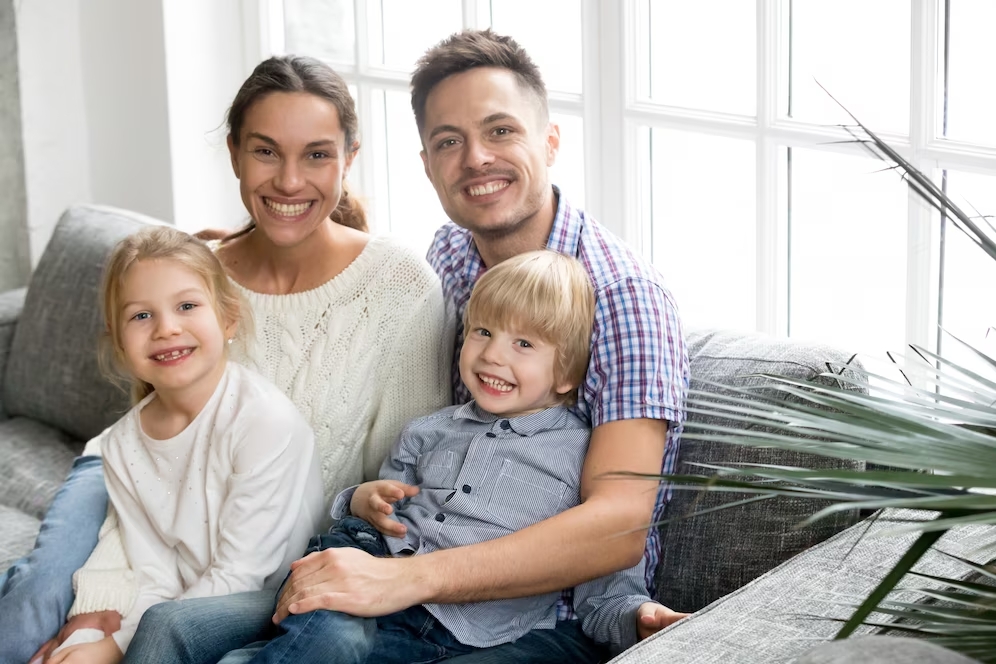Parenting involves using a harsh voice and strategy when required: it does not always mean hugging and pampering the children continually. You can understand this opinion better if you are a parent or guardian of young kids. But is it always essential to shout at your child or force your viewpoint on them for small matters? Or, without getting upset or even hurting their feelings, can there be more effective strategies for handling your little one? Browse the entire blog to discover all about positive parenting, which will help you to comprehend your child better.
What Is Positive Parenting?
Now these days, the term positive parenting is increasing! But precisely what does it mean? And how do we carry it?
At first sight, positive parenting seems optimistic without any response to your children’s bad behavior. Although on the opposite, positive parenting does not prevent you from correcting your child when they misbehave. It focuses on discipline and boosts the kids to become confident and responsible individuals who treat others with respect, kindness, and gratefulness.
1. Benefits of Positive Parenting
Here’s the list of top benefits related to the performance of a good parenting strategy:
Improves Bonding between Parents and Children
Positive parenting helps you to develop a robust bonding between parents and children. This method and behavioral development strategies help create trust between parents and kids. This is because, due to positive parenting, children will start a positive discussion with their parents. Your child will face more events and complex social life issues when they enter middle school or high school, and most kids hesitate to share their problems with their parents. Therefore, a positive parenting strategy will stimulate your kids to engage in this stage.
Increased Happiness and Self-Esteem
The reasons for a happy environment in your home are mutual trust, positive actions, and compelling conversation, which will boost self-esteem in your kids. As a parent, you should focus more on encouragement and progress, which will help children get a positive life approach. It applies to children and adults because we can develop good behavior when we view mistakes and imperfections as possibilities for growth rather than as reasons for self-inflicted shame and negativity. Less stress for parents and kids results in a friendly home environment.
Reduces Negative Behavior
One big problem for parents is having negative behavior toward their children. Parenting may become difficult for young teens who try to get away with their irrational behavior while avoiding responsibilities. As parents, you still need to maintain your limits for your kid, which is essential to understand. Thus positive parenting encourages you to adopt positive options for negative actions.
Improves Mutual Respect
Along with developing mutual trust between parents and kids, positive parenting is developing open conversation and an optimistic viewpoint. Rules are crucial for children, but you should make them understand why to follow these orders instead of telling them that they have to track your order. Also, you should make it clear to your kids that they don’t go out without permission.
2. Best Positive Parenting Strategies to Follow
Here are some helpful ideas for positive parenting that you may use:
At Home, Use Fair and Strict Positive Parenting Discipline
As we all know, children learn by mimicking their parents, therefore being respectful and kind which can set an example for your kids to follow. This method also helps in calming the environment in your house. Moreover, it allows children to be open to reason, especially in difficult situations.
Try To Be Innovative and Non-Punitive
Your children may undoubtedly have emotional outbursts or intentionally misbehave at times. During this time, we highly suggested being more creative with the imposition you can give them instead of punishing them. A non-punitive and inventive approach encourages the most challenging children to learn new behavior.
Understand the Age-Related Behavioral Habit
Parenting guidelines for toddlers and teens are different from one another. As a parent, you need to understand and act accordingly, as brain maturation and age-related behavioral pattern in kids or toddlers are additional. Good judgment might not be practical for children under three, but you can use automatic discipline with older children by giving them choices.
Avoid Criticizing and Shaming
Let’s think about this statement “You are eight years old when you grow up.” Stop acting so stupid! Such sentences have a terrible meaning that also has the effect of embarrassing children and reducing their self-esteem. Instead of shaming or insulting children, have an open conversation with them and explain why their behavior is wrong.
You may feel satisfied if you and your children have a peaceful and friendly relationship. Positive parenting tips will help you deal with behavioral issues in children at all stages of life and promote healthy child development.

